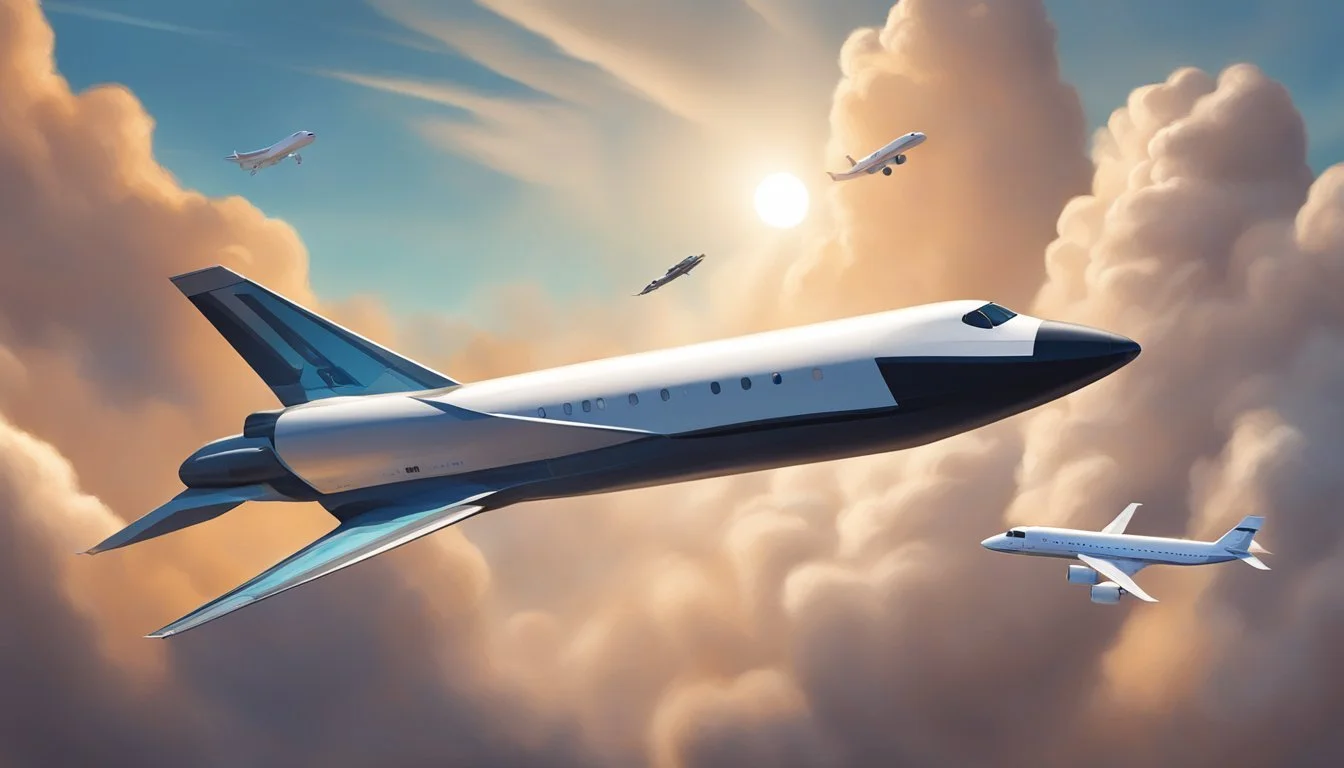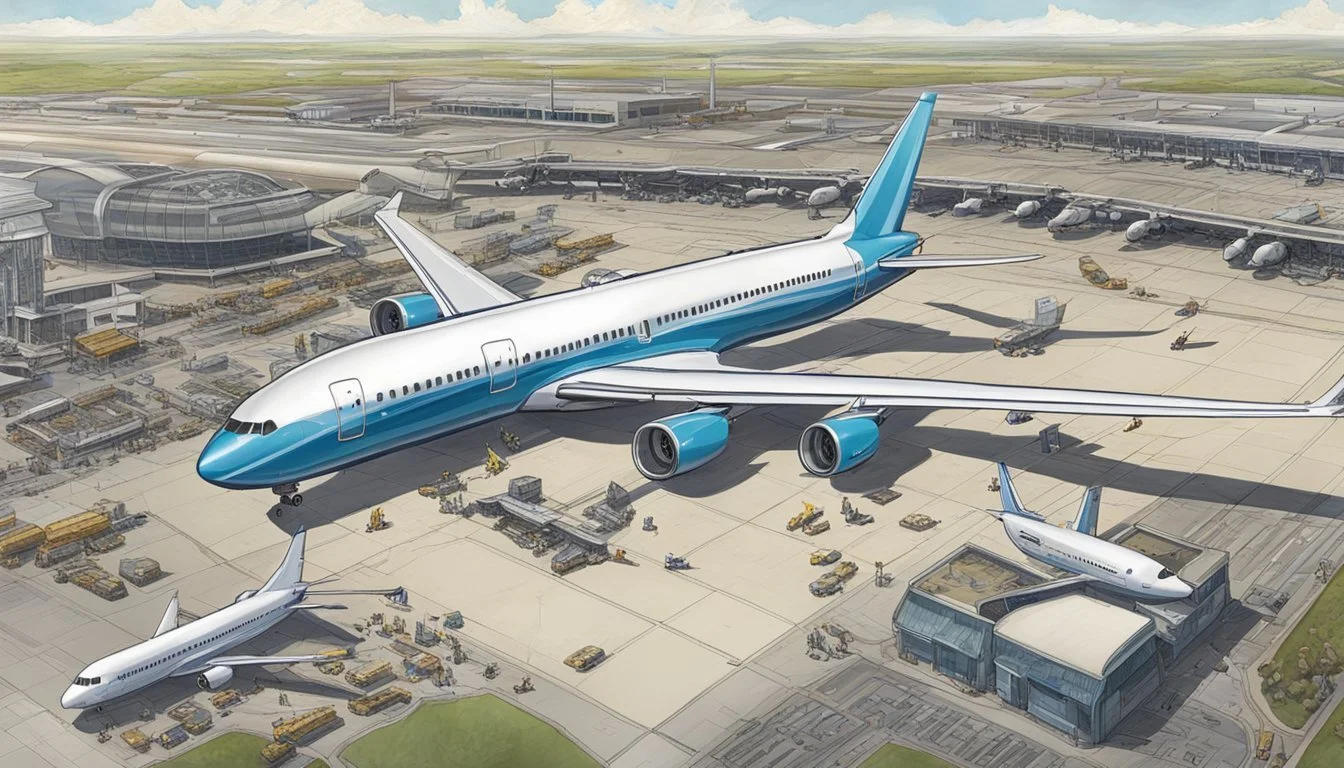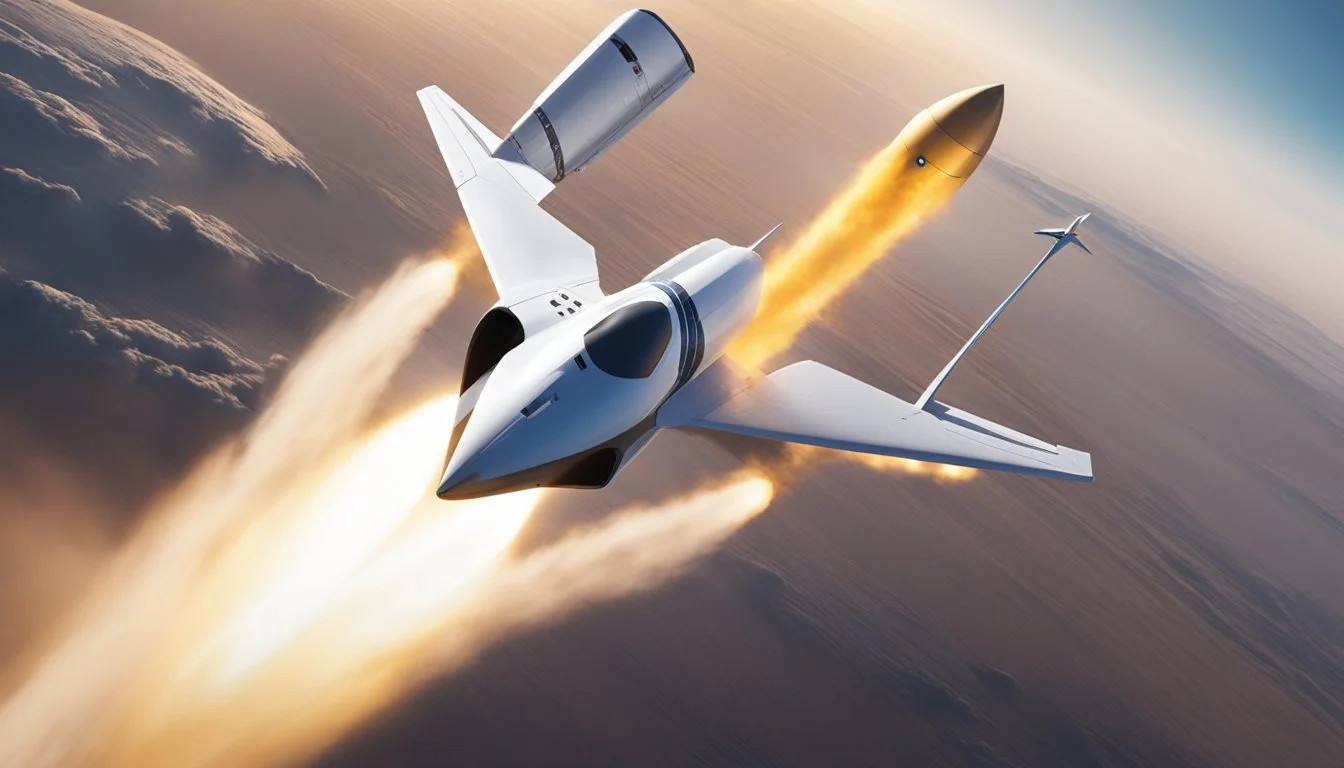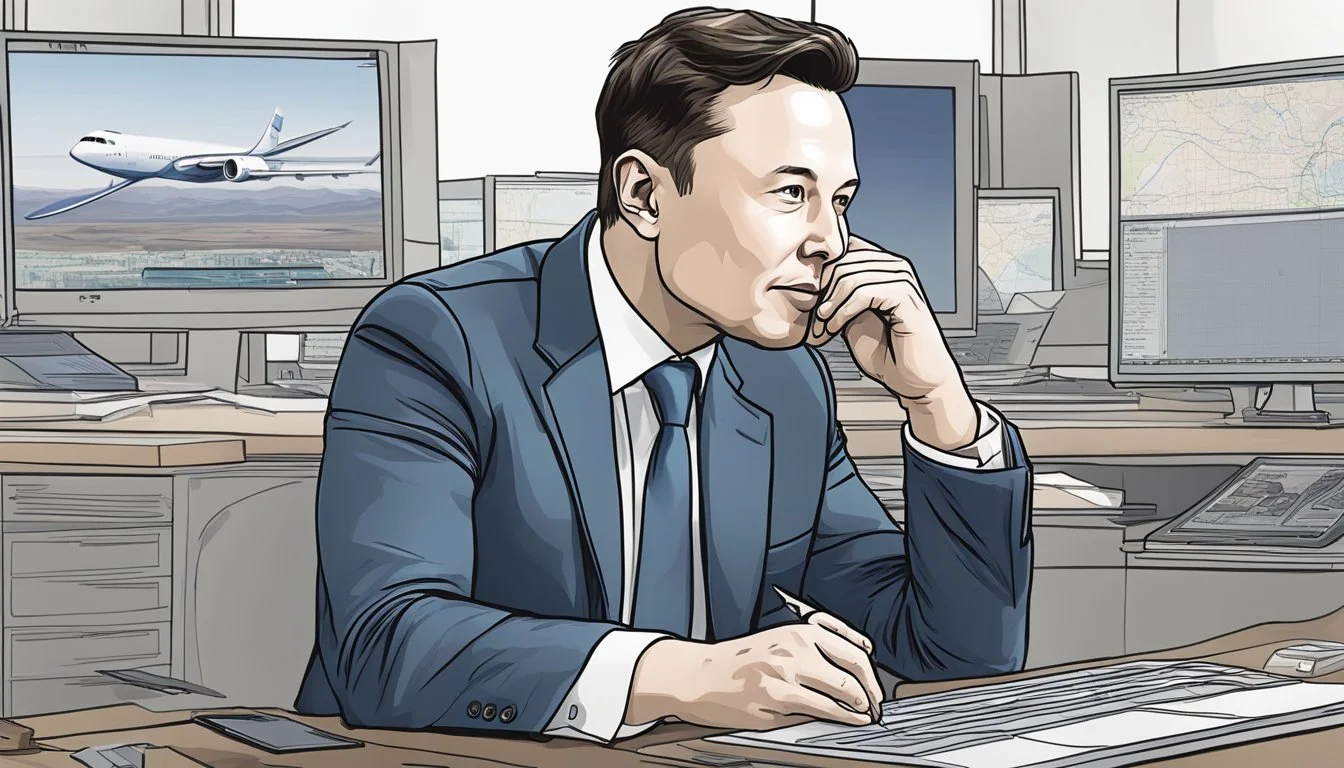Did Elon Musk Buy Boeing? Shocking Rumors Debunked in the World of Misinformation!
Rumors about Elon Musk's business acquisitions frequently circulate online, sparking speculation and debate. In late 2024, claims emerged suggesting the tech entrepreneur had purchased aerospace giant Boeing. These reports quickly spread across social media platforms, capturing the attention of investors and aviation enthusiasts alike.
Elon Musk did not buy Boeing. The allegations were entirely fabricated and lacked any factual basis. Boeing remains an independent, publicly-traded company on the New York Stock Exchange. No tender offers or acquisition announcements were filed with the Securities and Exchange Commission, which would be required for such a significant transaction.
This false claim is part of a broader trend of misinformation surrounding Musk's business activities. Throughout 2024, similar unfounded rumors circulated about his supposed purchases of other major corporations like McDonald's and Amazon. These stories highlight the importance of critical thinking and fact-checking in the age of rapid information sharing on social media.
Background on Elon Musk
Elon Musk, a prominent entrepreneur and innovator, has made significant contributions to the aerospace and automotive industries. His ventures have revolutionized space exploration and electric vehicle technology.
Founding of SpaceX
Elon Musk founded Space Exploration Technologies Corp., better known as SpaceX, in 2002. The company's primary goal was to reduce space transportation costs and enable the colonization of Mars.
SpaceX achieved several groundbreaking milestones:
First privately funded liquid-propellant rocket to reach orbit (Falcon 1 in 2008)
First private company to send a spacecraft to the International Space Station (2012)
First successful vertical landing of an orbital rocket booster (2015)
These achievements disrupted the aerospace industry, challenging established players like Boeing and Lockheed Martin.
Involvement with Tesla
Musk joined Tesla Motors in 2004, investing in the company and becoming chairman of its board of directors. In 2008, he took on the role of CEO, a position he has held since.
Under Musk's leadership, Tesla:
Launched the Roadster, the first highway-capable all-electric car in serial production (2008)
Introduced the Model S, which became the best-selling plug-in electric car worldwide in 2015 and 2016
Expanded into energy storage and solar panel manufacturing
Musk's vision for Tesla extends beyond cars, aiming to accelerate the world's transition to sustainable energy. His bold strategies and unconventional approach have transformed Tesla into a major player in the automotive industry.
Boeing's Position in the Market
Boeing remains a major player in the commercial and defense aerospace sectors. The company faces both opportunities and challenges as it navigates a competitive global landscape.
Aerospace Industry Overview
The aerospace industry encompasses commercial aviation, defense, and space sectors. Boeing competes primarily with Airbus in the commercial aircraft market. In defense, Boeing contends with Lockheed Martin, Northrop Grumman, and others for government contracts.
Commercial air travel demand has rebounded since 2020, benefiting aircraft manufacturers. Defense spending by the U.S. and allies provides steady business. Space exploration and satellite markets offer growth potential.
Boeing's diverse portfolio spans commercial jetliners, military aircraft, satellites, and launch systems. This breadth helps balance market fluctuations across sectors.
Boeing Stock Insights
Boeing stock (NYSE: BA) is closely watched by investors as a barometer for aerospace and defense. The company's financial performance impacts share price movements.
Key factors influencing Boeing stock include:
Commercial aircraft orders and deliveries
Defense contract awards
Profit margins and cash flow
Regulatory issues and safety concerns
Global economic conditions
Boeing's ability to execute on its commercial and defense programs directly affects investor confidence. Management's strategic decisions and industry trends shape long-term stock performance.
Analysis of Share Price
Boeing's share price reflects market sentiment about the company's prospects. Historical stock data reveals price volatility tied to industry cycles and company-specific events.
Factors affecting Boeing's share price:
Quarterly earnings reports
Major contract announcements
Aircraft certification progress
Production rate changes
Geopolitical events impacting air travel or defense spending
Analysts track Boeing's price-to-earnings ratio, debt levels, and free cash flow when evaluating the stock. Comparisons to industry peers help gauge relative valuation.
Boeing's ability to overcome recent challenges and capitalize on market opportunities will likely drive future share price performance.
The Acquisition Rumor
In late 2024, rumors spread rapidly claiming Elon Musk had purchased aerospace giant Boeing. These claims sparked widespread discussion and speculation across social media and financial circles.
Origin of Claims
The rumor began circulating online in December 2024. Social media posts featuring images of Elon Musk in front of Boeing aircraft spread quickly. Some posts included fabricated quotes attributed to Musk announcing the supposed acquisition.
These false claims gained traction due to Musk's high profile and his existing involvement in the aerospace industry through SpaceX. The rumor's timing coincided with a period of challenges for Boeing, making the idea seem plausible to some observers.
Fact Check Sources
Multiple fact-checking organizations investigated the Boeing acquisition claims. Snopes, a prominent fact-checking website, published a detailed report debunking the rumor. USA Today also conducted a fact check, confirming the claim was fabricated.
These sources found no evidence of Musk purchasing Boeing. They noted the absence of any official announcements from Musk, Boeing, or regulatory bodies. The Securities and Exchange Commission had no record of a tender offer, which would be required for such a major acquisition.
Public and Market Reactions
The rumor sparked significant public interest and discussion. Many social media users expressed excitement or concern about the prospect of Musk taking over Boeing. Some individuals even considered buying Boeing stock based on the false information.
Boeing's share price experienced temporary fluctuations as the rumor spread. However, the impact was limited once fact-checks were widely circulated. Financial analysts emphasized the importance of verifying information before making investment decisions.
The incident highlighted the speed at which misinformation can spread in the digital age and its potential to influence public perception and market behavior.
Impact on Industry and Innovation
Elon Musk's rumored acquisition of Boeing would have significantly reshaped the aerospace landscape. The potential merger of SpaceX and Boeing technologies could have accelerated cutting-edge developments across multiple sectors.
Advanced Aerospace Developments
A Musk-led Boeing might have prioritized revolutionary aircraft designs. The company could have focused on electric and hydrogen-powered planes to reduce carbon emissions. Supersonic and hypersonic passenger jets might have become a renewed priority, potentially cutting long-distance travel times dramatically.
Boeing's expertise in large-scale manufacturing could have been applied to SpaceX's Starship program. This synergy might have accelerated the production of next-generation spacecraft for both Earth orbit and deep space missions.
AI-Generated Technology Integration
Musk's strong interest in artificial intelligence could have led to increased AI integration in Boeing's operations. AI-driven design processes might have optimized aircraft aerodynamics and structural efficiency. Autonomous flight systems could have been fast-tracked, potentially reducing the need for human pilots in certain scenarios.
Machine learning algorithms might have enhanced predictive maintenance capabilities. This could have improved aircraft safety and reduced downtime for commercial airlines.
Potential for Space Exploration
A combined Boeing-SpaceX entity would have possessed unparalleled resources for space exploration. The International Space Station (ISS) could have seen accelerated upgrades and expansions. New modules or even entire space stations might have been developed more rapidly.
Mars colonization efforts could have received a significant boost. Boeing's experience with life support systems might have been crucial for developing long-term habitation modules for the Red Planet.
Lunar missions and asteroid mining initiatives might have become more feasible. The combined expertise in spacecraft design and resource extraction could have opened new frontiers in space-based economic activities.
Strategic Analysis
Elon Musk's rumored acquisition of Boeing sparked discussions about industry dynamics and financial implications. This analysis examines key aspects of such a hypothetical deal.
Merger and Acquisition Trends
Aerospace industry consolidation has been a significant trend in recent years. Large-scale mergers and acquisitions aim to enhance competitiveness and streamline operations. Boeing, as a major player, has been subject to speculation about potential ownership changes.
Elon Musk's track record of disruptive ventures in various industries fueled rumors of his interest in Boeing. His leadership of SpaceX, a key competitor in the space sector, added credibility to these claims.
However, verified sources confirm that Musk did not purchase Boeing. The aerospace giant remains an independent entity.
Financial and Legal Implications
A hypothetical Musk-Boeing deal would have faced substantial regulatory scrutiny. Antitrust concerns and national security implications would likely have prompted extensive government review.
Boeing's market capitalization and complex ownership structure present significant financial hurdles for any potential buyer. The company's share price fluctuations in response to acquisition rumors demonstrate the market's sensitivity to such news.
Legal considerations, including shareholder approvals and contractual obligations, would have been major factors in any acquisition attempt. Boeing's extensive government contracts and international partnerships add layers of complexity to ownership changes.
Public and Investor Perspectives
The rumored acquisition of Boeing by Elon Musk sparked varied reactions among customers and investors. Opinions ranged from excitement to skepticism, with potential impacts on Boeing's reputation and stock price.
Customer Trust and Brand Loyalty
Boeing customers expressed mixed feelings about the potential acquisition. Some saw Musk's innovative approach as promising for Boeing's future. Others worried about potential changes to Boeing's established practices and quality standards.
Airlines, a key customer segment, voiced concerns about potential disruptions to aircraft deliveries and support services. Military and government clients questioned how the acquisition might affect defense contracts and national security considerations.
Boeing's brand loyalty faced uncertainty. Long-time customers wondered if Musk's leadership style would align with Boeing's corporate culture and values.
Investment Community Opinions
Financial analysts debated the merits of a Musk-led Boeing. Some saw potential for increased innovation and cost-cutting measures. Others questioned Musk's ability to manage another large company alongside his existing ventures.
Boeing stock experienced volatility as rumors circulated. Investors weighed the potential benefits of Musk's involvement against the risks of significant changes to Boeing's operations.
Speculation arose about how Musk might finance such a large acquisition. Analysts discussed possible scenarios involving Tesla stock, SpaceX resources, or external funding sources.
The aerospace industry watched closely, considering how a Musk-owned Boeing might shift competitive dynamics and technological priorities.
Conclusion
The claims of Elon Musk purchasing Boeing in late 2024 are unfounded. Multiple fact-checking sources have debunked this rumor, confirming it to be fabricated information.
Boeing remains an independent aerospace company. No credible evidence supports any acquisition by Musk or his companies.
Elon Musk continues his involvement in the aerospace industry primarily through SpaceX. His focus remains on space technology and exploration rather than commercial aviation.
The spread of this false information highlights the importance of verifying news from reliable sources. Especially for major business deals involving prominent figures and companies.
The aerospace industry continues to evolve, with Boeing and SpaceX operating as separate entities. Their distinct trajectories in aviation and space technology persist unchanged by these unsubstantiated rumors.







